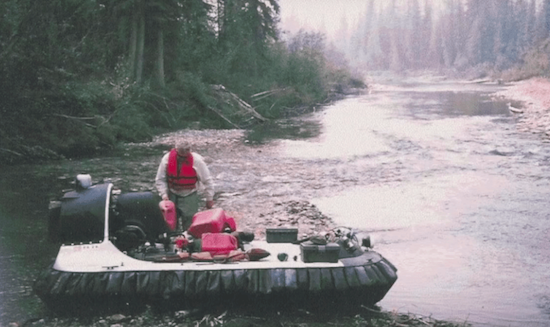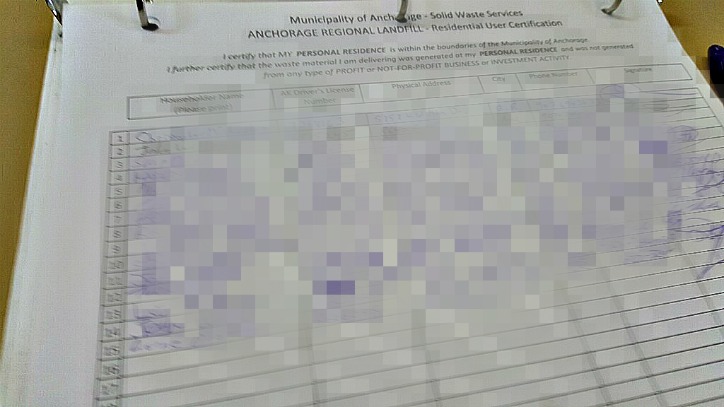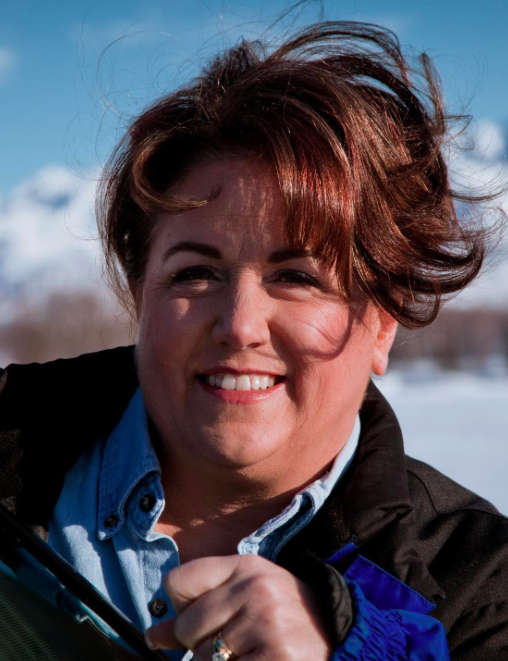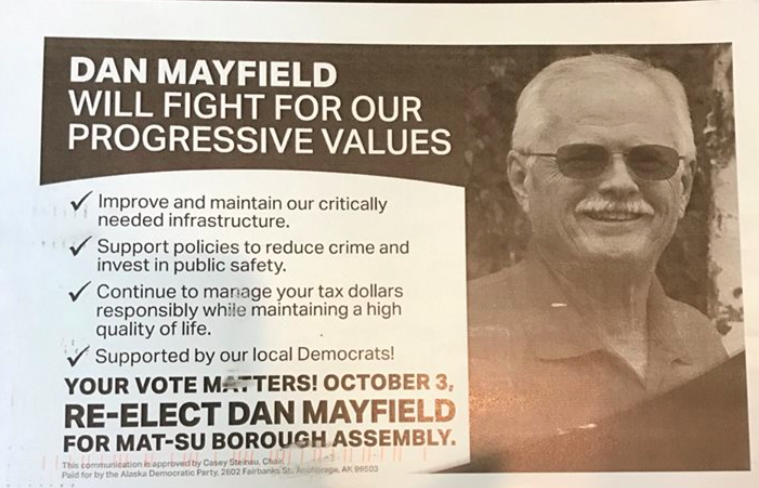The Katie John case may cost Alaskans their right to navigate rivers and other waterways across the state. Many outdoor enthusiasts predicted it would.
In a case that has gone on for 10 years, the Ninth Circuit Court of Appeals has once again upheld the National Park Service in its decision to ban hovercrafts from the Nation River in the Yukon-Charley National Preserve.
The Ninth Circuit is using the Katie John decision, which former Gov. Sean Parnell sought to clarify through the courts, but which Gov. Bill Walker refused to pursue once he took office in the fall of 2014.
The Parnell Administration said it was a question of authority over navigable waters in the state. Alaska was given the same rights as other states at Statehood, including the right to control state-owned navigable waters next to and within federal land.
The Yukon-Charley Preserve was established by the Alaska National Interest Lands Conservation Act and is federal land.
Alaskan John Sturgeon used a hovercraft to get to moose hunting grounds, when he was stopped by Park Service rangers. Sturgeon argued that the Nations River is navigable, therefore is under State jurisdiction.
The case went all the way to the U.S. Supreme Court, which agreed with part of Sturgeon’s argument, but remanded part of it back to the Ninth Circuit for further review.
The judges of the Ninth appear to be using another portion of law — the Reserve Water Rights Doctrine — to make all navigable waters in the ANILCA land case subject to federal jurisdiction.
And they are using the Katie John decision to back them up:
According to the Ninth Circuit judges:
“The panel held that under the Katie John precedent – Alaska v. Babbitt, 72 F.3d 698 (9th Cir. 1995) (Katie John I), John v. United States, 247 F.3d 1032 (9th Cir. 2001) (en banc) (Katie John II), and John v. United States, 720 F.3d 1214 (9th Cir. 2013) (Katie John III) – the United States had an implied reservation of water rights, rendering the river public lands. On remand from the United States Supreme Court, the panel again concluded that the federal government properly regulated hovercraft use on the Nation River in the Yukon- Charley preserve.
“Judge Nguyen also separately concurred, joined by Judge D.W. Nelson. Judge Nguyen acknowledged that the panel was bound by case law to analyze this case under the reserved water doctrine, but she would conclude that this case is better analyzed under the Commerce Clause as it is about the right to regulate navigation on navigable waters within an Alaska national preserve.
Under this doctrine, when the federal government “withdraws its land from the public domain and reserves it for a federal purpose,” the government impliedly “reserves appurtenant water then unappropriated to the extent needed to accomplish the purpose of the reservation.” Cappaert v. United States, 426 U.S. 128, 138 (1976). The United States thus “acquires a reserved right in unappropriated water which vests on the date of the reservation and is superior to the rights of future appropriators.
Whether a federally reserved water right is implicit in a federal reservation of public land depends on whether the government intended to reserve unappropriated water. Id. at 139. “Intent is inferred if the previously unappropriated waters are necessary to accomplish the purposes for which the reservation was created.”
In 2014, retired biologist Ron Somerville of Juneau warned of this outcome in a letter to the Juneau Empire:
Although Katie John’s intentions were to protect her family’s traditional subsistence uses, the resulting federal litigation morass has resulted in making Alaska a second tier State. The federal government is systematically taking away our fish and wildlife management authorities, access to and ownership of land and resources, any hopes of a transportation infrastructure and a unified state.
If you want to see the federal government eventually managing all of our fish and wildlife resources again, including our commercial fisheries, I suggest you vote for Begich and the unity ticket of Bill Walker and Mallott. If you want to see the state lose some or most of its submerged lands and associated resources, I would also suggest you vote for Begich and Walker/ Mallott. If you want to see a reservation system created in Alaska similar to those in the Lower 48 states and you want to see only a Native priority for taking fish and wildlife, look to Begich, Walker and Mallott for relief.
Somerville’s prediction appears to have come to pass.
BACKGROUND
In March, Chief Justice John Roberts agreed with Sturgeon when he delivered the Supreme Court’s opinion, which said in part:
For almost 40 years, John Sturgeon has hunted moose along the Nation River in Alaska. Because parts of the river are shallow and difficult to navigate, Sturgeon travels by hovercraft, an amphibious vehicle capable of gliding over land and water. To reach his preferred hunting grounds, Sturgeon must pilot his hovercraft over a stretch of the Nation River that flows through the Yukon-Charley Rivers National Preserve, a 1.7 million acre federal preservation area managed by the National Park Service. 16 U. S. C. §410hh(10).
Alaska law permits the use of hovercraft. National Park Service regulations do not. See 36 CFR §2.17(e) (2015). After Park Service rangers informed Sturgeon that he was prohibited from using his hovercraft within the boundaries of the preserve, Sturgeon filed suit, seeking declaratory and injunctive relief. He argues that the Nation River is owned by the State, and that the Alaska National Interest
Lands Conservation Act (ANILCA) prohibits the Park Service from enforcing its regulations on state-owned land in Alaska. The Park Service disagrees, contending that it has authority to regulate waters flowing through federally managed preservation areas. The District Court and the Court of Appeals ruled in favor of the Park Service. We granted certiorari.
The Supreme Court decision and elegant explanation of the case is here.
The latest Ninth Circuit opinion is likely to be returned to the U.S. Supreme Court once again. Efforts to reach John Sturgeon were not successful. This story will be updated.










